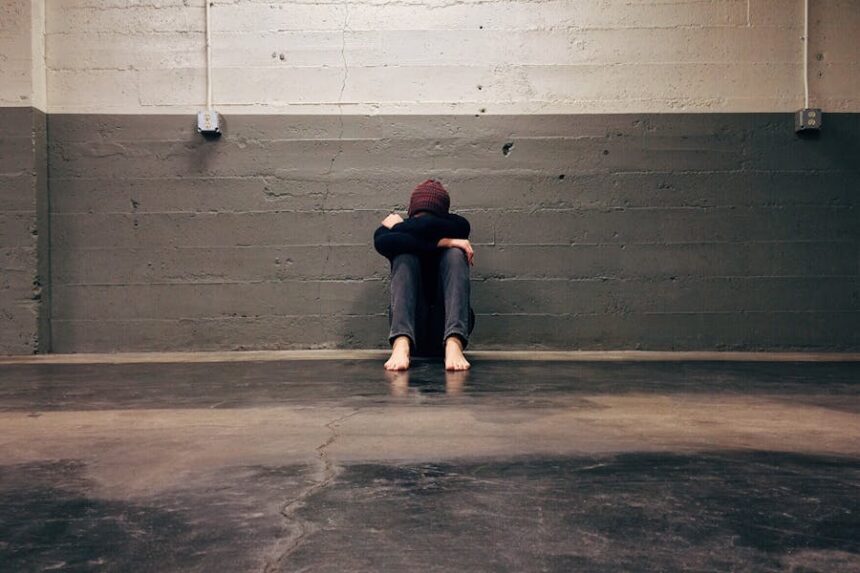Life throws stress our way every day, and stress is a natural response, but the problem comes when the stress persists; that’s when it becomes chronic, and it is something that does indeed have a profound impact on your physical and mental health. Millions of people experience the feeling of pressure and being overwhelmed by this daily chronic stress. Short-term stress helps to get you through immediate challenges, but chronic stress keeps on going and destroys nearly all areas of your well-being. If you understand what it is, how it can affect you, and what you can do to manage it, you regain control over your health and quality of life.
- What happens to your body when stressed?
- Chronic Stress Effects on Physical Health
- Mental and Emotional Toll of Chronic Stress
- Common Triggers of Chronic Stress
- Recommended Strategies for Dealing with Chronic Stress Effectively
- Seek Professional Help
- Prioritize Self-Care
- Practice Mindfulness
- Build a Support Network
- Make Lifestyle Adjustments
- The Risk of Long-Term Ignoring of Chronic Stress
- Where Should You Seek Help?
- Tips for Managing Stress in Everyday Life
- Conclusion
What happens to your body when stressed?
When the body is experiencing stress, something called the “fight or flight” response is triggered. In this scenario, our body releases hormones such as adrenaline and cortisol, which are ready for immediate threats.
Short-Term Stress Benefits: It quickens your focus, gives you energy, and puts you in a period of higher physical performance.
Chronic Stress Harm: These stress hormones stay high long enough to keep your body in a heightened state over time and can cause you big health problems. The long-term effects of chronic stress include body aches and insomnia, as well as other complications such as:
Chronic Stress Effects on Physical Health
Almost everyone has been affected by chronic stress. Here’s how:
Cardiovascular System: Chronic stress literally raises your blood pressure and increases cholesterol levels, making you much more likely to have heart attacks and strokes.
Immune System: Elevated cortisol suppresses your immune function, making you more prone to colds, infections, and even autoimmune diseases.
Digestive System: Stress can also upset your digestive system, and it may cause you to feel bloated, have stomach ache, or develop Irritable Bowel Syndrome (IBS).
Chronic Pain: Long-term stress also causes headaches, back pain, and sometimes migraines due to prolonged muscle tension.
Mental and Emotional Toll of Chronic Stress
Chronic stress affects your emotional and mental health beyond physical effects.
Anxiety and Depression: Long-term stress can cause you to feel hopeless, irritable, and constantly worried.
Cognitive Impairment: Stress hinders memory, decision-making, and concentration, making simple everyday tasks harder.
Sleep Disturbances: People who are often stressed feel insomnia and restless sleep, which contribute to the issue.
If mental health goes downhill, it tends to form a vicious cycle in which stress breeds more stress, and it is harder to deal with.
Common Triggers of Chronic Stress
If you want to do it right and manage chronic stress effectively, identifying its root cause is key. Some of the most common triggers include:
Workplace Pressures: Significant stressors are deadlines, high workload, and job insecurity
Financial Struggles: The leading causes of chronic stress are worries about money and financial stability.
Relationship Issues: Emotional distress can result from conflicts, or lack thereof, with partners, family, or friends.
Health Problems: Sustained stress is common because of living with or caring for a chronic illness.
The first step to finding useful solutions is to understand your own stressors.
Recommended Strategies for Dealing with Chronic Stress Effectively
Chronic stress always feels overwhelming, but with consistent effort, it may be managed.
Seek Professional Help
Seek a therapist or counselor if stress threatens to become too much. Rehab in malibu treats individuals with stress that has caused harmful coping mechanisms that can only help those whose stress has prompted unhelpful responses.
Prioritize Self-Care
Self-care is not a luxury; it’s necessary to get through stress. Endorphins are natural stress relievers, and they are released during regular exercise. That means a balanced diet containing nutrients supports not only overall well-being but also proper sleep, which helps the body recover from daily stressors.
Practice Mindfulness
Meditation, deep breathing, and yoga techniques can help calm the mind and fend off the physiological effects of stress. When you incorporate these practices into your routine, you will be much better equipped to respond to challenges.
Build a Support Network
The benefit of a large network of friends and family is that you have people around you who can offer emotional support. Talking to someone who knows can take the load off the mind.
Make Lifestyle Adjustments
Small changes in your everyday routine can make a big difference. For example:
- Take regular breaks while working.
- Cut back on caffeine and alcohol.
- Establish boundaries so you have a work-life balance.
The Risk of Long-Term Ignoring of Chronic Stress
Failing to address chronic stress can result in serious health consequences, including:
Diabetes: Certain stress hormones increase blood sugar levels, which could increase your risk for type 2 diabetes.
Obesity: Weight gain comes with emotional eating and a sedentary lifestyle.
Mental Health Disorders: One key piece to countering chronic stress is the generation of anxiety, which concurrently contributes to depression, burnout, and worse.
Where Should You Seek Help?
Understanding when your stress has become over the top is important. If it starts to affect your ability to survive, get help.
Therapists and Counselors: Professional therapists and counselors can develop strategies for you to cope with stress.
Specialized Programs: Rehab centers offer comprehensive care for both the symptoms and root cause of stress if their behaviors are precipitated by chronic stress.
Tips for Managing Stress in Everyday Life
Incorporating these habits into your routine can help you manage stress more effectively:
Time Management: By having realistic goals and proper priorities for your day, you’ll reduce the feeling of being overwhelmed.
Unplug Regularly: Relax and recharge your mind by taking breaks from screens.
Laugh Often: Laughing really is a good stress reliever. It’s easy to shift your mood by watching a funny movie or spending time with someone who makes you feel happy.
Conclusion
Chronic Stress is a silent adversary and will affect your health and happiness if not taken care of. If you understand its effects and put proactive measures in place, you can diminish the effects on your well-being and live a more balanced life. If you don’t act, whether it’s through mindfulness practices, creating a support network, or looking for professional help, such as rehab in Malibu, you are not more prone to the consequences of chronic stress. Life is full of stress, but it doesn’t have to be ruining your life. If you have the right way and mindset, you can break out of the cycle of chronic stress and get your health, happiness, and purpose back.




